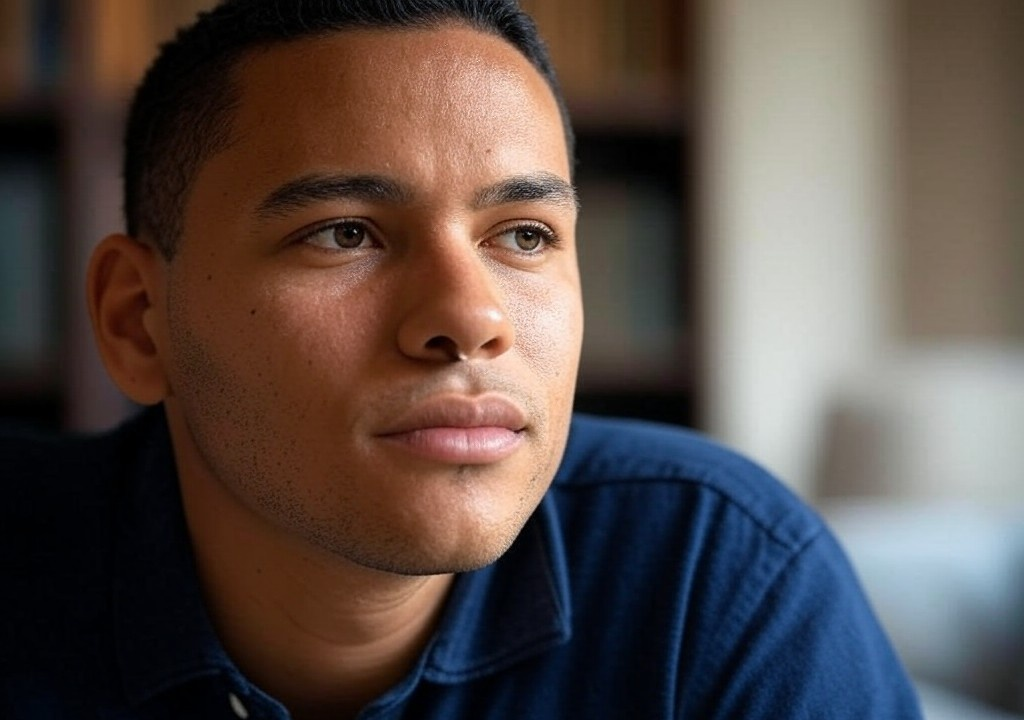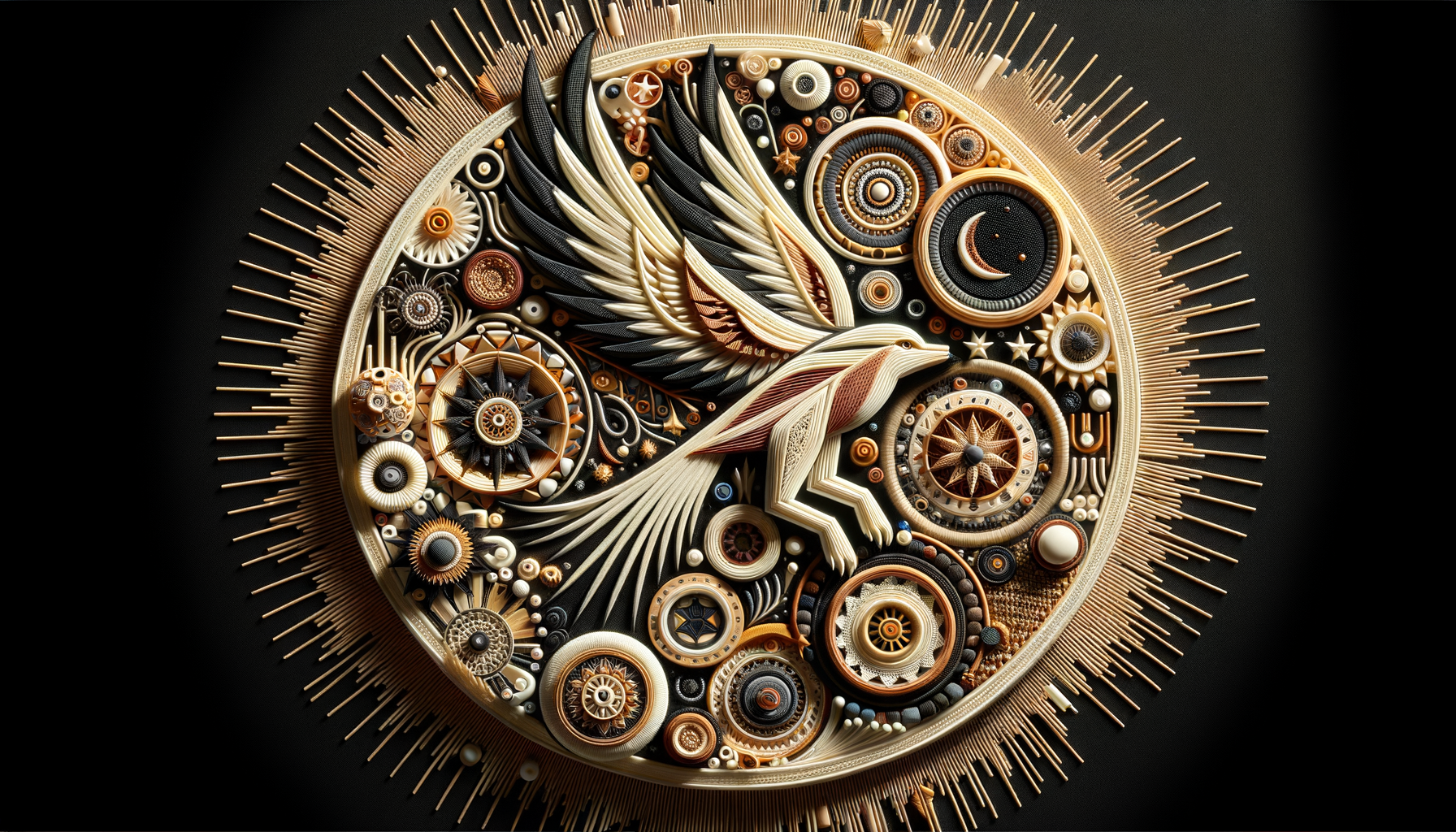The Person Who Saw Me
The first time I bombed an interview, I walked out of the office into the Miami sunlight and considered getting a busboy job at the café around the corner. It wasn’t that I didn’t have ambition—it was the complete lack of belief that my ambition would matter. I’d sat in front of the hiring manager with the posture of a wilted plant and mumbled through answers about my “future goals.” Future? Please. At the time, my plans extended only as far as figuring out whether I could afford takeout that night or if I was stuck microwaving leftovers from my mom’s Tupperware stash.
But then someone saw me. Really saw me. And it changed everything.
The Chance Encounter
You know how in rom-coms there’s always that one wise character swooping in with perfect timing? A mentor showing up just as the main character is on the verge of becoming a professional disaster? I used to roll my eyes at that trope. But in my life, that role was played by an older journalist named Hugo. We met at a bad networking event—or rather, I was there awkwardly hugging a corner, and he was actively working the room like he owned it. He approached me with a giant plate of cheese cubes and asked what I was doing out of my cage.
“I’m sorry?”
“Not in the literal sense,” he said, motioning to my hunched shoulders. “Just, you look like someone let their pet writer out of the basement—for free snacks, maybe?”
It was teasing, but not mean. I laughed awkwardly and made some excuse about just trying to find my footing. I explained I was fresh out of school, drowning in job rejections, and unsure whether a career in journalism was even worth chasing.
“Yeah, you’re doing that thing we all do,” he said, waving his toothpick of Gouda in the air like a sage with a wand. “Flagellating yourself. Here’s the thing: no one’s going to bet on you until you bet on you. But I can tell you’ve got something.”
“Something?” I asked, skeptical.
“Yeah,” he said. “Not sure if it’s your writing or the way you just went full deer-in-headlights over a plate of cold cuts, but it’s something. Come back to me once you figure it out.” Then he handed me his card and disappeared into the crowd like a very well-dressed magician.
Seeing Things You Don’t See in Yourself
If this were a fable, Hugo’s card would’ve sparked an afternoon montage of fresh grit and creativity. But in real life, I still went home that night and heated up my mom’s arroz con pollo. For weeks, I didn’t call. I convinced myself he probably gave his card to dozens of people every month and forgot me within seconds.
Still, his words stuck. What did he mean by “something”? And why couldn’t I see it myself?
Eventually, mostly out of curiosity, I reached out. Hugo said he remembered me—how my tie was slightly crooked, and I’d stammered when asked what kind of stories I liked to write. “But beyond that,” he said, “you looked like someone who wants to tell the entire truth about who they are but doesn’t know how yet. You’ve got to work on that.”
I didn’t know what to say to this. So I stared at my coffee cup. That silence became the start of regular meetups where he gently but unrelentingly disassembled my self-doubt. Hugo cut straight to what I was trying to skim past: my struggles to own the parts of me that didn’t scream polished professional. The Latinx kid who grew up in a crowded home peppered with Spanish exasperations and tamaladas on Christmas Eve? That kid had been good enough for family stories, but he didn’t feel worthy in a whitewashed, hypercompetitive newsroom.
Hugo called nonsense on all of that. “Your past? It’s your edge, not your disadvantage,” he told me. “Stop hiding what makes you different. Start leading with it.”
When Someone Believes in You, Borrow Their Confidence
Here’s the thing no one tells you in job interviews, dates, or practically any situation involving another human: the people who stand out are the ones unafraid to show their raw edges. That’s exactly what Hugo taught me. Rather than try to smooth down every story into something generic, I started leaning into my lived experience—the extremely Cuban chaos of my upbringing, my obsession with intergenerational love stories, the way Miami always felt like a mouthful of cafecito and stubborn pride. I started telling stories as me.
Hugo gave me feedback on my writing that felt less like critique and more like excavation. “This,” he’d say, circled in red pen, “feels good. This sounds real. Go deeper.” His faith in my voice was unshakable—a fact that felt absurd, considering I’d been so unsure of it myself. Yet with every story I pitched, every paragraph I rewrote, I felt something shifting. Not just in my writing, but in how I approached opportunities in general.
Call it borrowed confidence. When someone strong sees potential in you, their belief can act like scaffolding until you’re steady enough to stand in it yourself.
How It Changed My Path—and Can Change Yours
I don’t get romantic with Hugo’s impact on my life because the truth is, he didn’t wave a wand and turn me into the Latinx Hemingway of my dreams. He did something harder and more impactful—he pointed to the tools I already had and made them impossible to ignore.
That’s what being seen does. It doesn’t erase your imperfections; it teaches you to lean into them. It doesn’t hand you a shortcut; it reminds you that the courage to continue is already inside you, no matter how battered or buried.
If you’re reading this and you haven’t found your Hugo yet, don’t panic. These people have an uncanny way of showing up when you least expect. Until then:
- Get comfortable leaning into the parts of yourself you’re scared to show. Whether it’s your heritage, quirks, or vulnerabilities, the things that make you “different” are often your superpowers.
- Don’t downplay your passions. There’s no shame in loving something wholeheartedly, whether it’s writing, painting, or hosting fantastically niche movie marathons in your living room.
- Seek out people who challenge you in a way that feels affirming. Friends, mentors, even strangers who share your spark—all of them can help sharpen who you are just by reflecting it clearly.
Not everyone you meet is going to understand your story. But when someone does, don’t brush it off just because it feels unfamiliar or uncomfortable. Sometimes, being seen is the first step to seeing yourself.
A Moment That Lasts Forever
Years later, when I sold my first short story to a literary magazine, I emailed Hugo to thank him. His response? Predictably blunt: “So you’re finally figuring out I was right. Took long enough.”
We cracked jokes about it over empanadas during our next meetup. But I remember leaving the restaurant that day, my bag heavier not just with his red-ink marks on my latest draft, but with a sense of clarity I couldn’t shake. This is what it felt like to be seen—not just as a collection of flaws and potential, but as a whole.
It’s the lesson I carry everywhere now, whether I’m writing about dating, relationships, or the tangled mess of human connection: Sometimes we need other people to remind us we’re worth the effort, even when we’re not sure where to start. If you’re still searching for that person, be patient—and in the meantime, practice being that person for yourself.




















